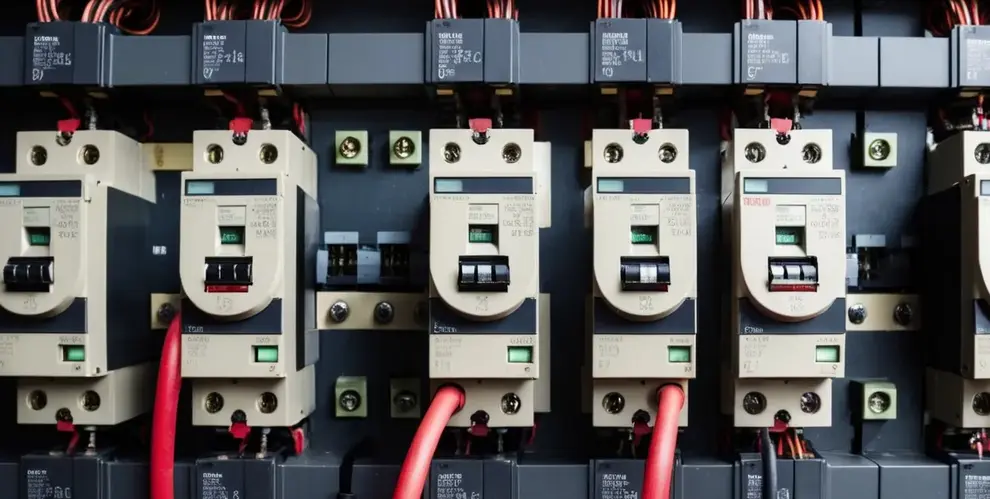As a hotel manager, ensuring your building has an effective and reliable electrical system should be a top priority. After all, even minor power issues can disrupt guests’ stays and damage your business’ reputation. When it comes to selecting the electrical control devices to install, two options often come up – contactors and circuit breakers. But what’s the difference, and which is better suited for hotel applications?
As the experts at JET Hotel Solutions (https://www.jethotelsolutions.com/) explain, both contactors and breakers have switching capabilities to control power to motors, lighting, appliances and other electric systems.
However, they serve different primary purposes. Contactors function mainly to directly turn loads on or off, while circuit breakers are protection devices designed to shut off power when faults occur.
Understanding the unique benefits and drawbacks of these two important electrical components can empower hotel managers to make the best choices in designing and upgrading their buildings’ electrical infrastructures with guest comfort, safety and cost-effectiveness in mind. Walk through a detailed comparison of contactors vs. breakers tailored specifically to the needs of hotels right here.
What is a Contactor?
First, let’s clearly define what a contactor is and does. A contactor can be thought of as a heavy-duty electric switch. Inside a contactor, movable contacts are connected to fixed contacts via electromagnets to open or close a power circuit.

Contactors are designed to withstand frequently starting motors or devices with high inrush startup current demands, making them the preferred direct control switch solution. They can also be integrated into automated control systems, allowing hotel electrical usage to be conveniently scheduled on timers.
What is a Circuit Breaker?
Now, how do circuit breakers differ? The primary function of any breaker is to protect electrical infrastructure and end users from harm if faults occur.
Inside a breaker, a current-carrying low resistance path is automatically tripped open if abnormalities like power spikes, overloads or short circuits are detected. This breaks the flow of electricity almost instantly. The systems, wires and people being fed power downstream are shielded from potential damage or injury.
In a hotel building, circuit breakers are essential as the last line of defense across lighting circuits, major appliances, heavy equipment like elevators and any other potentially hazardous electric systems. While contactors directly turn these hotel loads on/off, breakers stand guard to cut the power if problems arise.
Key Contactor vs Breaker Considerations for Hotels
When designing or upgrading a hotel’s electrical system, facility managers must decide whether contactors or circuit breakers (or both) are most suitable for various applications across the building based on factors like:
- Functionality: Contactors provide ON/OFF power control, while circuit breakers protect systems in fault events. Both serve crucial but distinct roles.
- Electrical load characteristics such as voltage level and inrush current must be compatible with the ratings and capabilities of the chosen device.
- Installation location specifics requiring special NEMA environmental resistance standards to withstand heat, moisture, chemicals or outdoor exposure.
- Control needs – contactor coils accept inputs allowing remote and automated power scheduling, while circuit breakers function autonomously as protective switches.
- Resilience requirements – frequency of switching operations, fault event tolerance ratings, and lifecycle maintenance costs must align with the reliability needs of that application.
Making the optimal contactor vs circuit breaker decision requires a firm grasp of these key factors. When it doubt, don’t hesitate to enlist the help of electrical engineering experts like those at our JET Hotel Solutions to evaluate your system’s unique specifications, intended functionality, cost constraints and safety priorities.
Best Hotel Applications for Contactors and Breakers
General recommendations exist for whether contactors or circuit breakers – or both together – represent safer and more practical solutions across common hotel electrical infrastructure. Consider the following guidelines:
Contactors Ideal For:
- Direct ON/OFF power control for heating/cooling systems like HVAC equipment, heat pumps, ventilation fans that require routine scheduling or temp-based activation rather than continuous operation.
- Supplying or cutting power to pools, outdoor landscape lighting, electric vehicle charging stations based on time-of-day usage patterns.
- Allowing housekeeping or maintenance staff to conveniently disconnect power to room sections so repairs or carpeting cleaning can be performed safely.
- Enabling front desk staff to cut power to unbooked room blocks during low occupancy periods for energy savings. The faster activation of contactors allows quick on-demand cut-in as guests check-in.
Circuit Breakers Critical For:
- Protecting the main feeder lines from the municipal power grid that supply the entire hotel’s electrical backbone infrastructure.
- Shielding people and preventing catastrophic structure or property damage risks associated with potential arc flash explosions stemming from overloaded panels, storm-related power spikes or wiring faults anywhere circuits carry high amp loads.
- Isolating faults occurring in lighting or outlets inside guests rooms on a floor-by-floor basis to limit scope of power interruption.
- Guarding sensitive, difficult-to-access or expensive-to-maintain equipment like elevator motor drives and emergency backup generators against damage if abnormalities occur.
Ultimately, both contactors and circuit breakers provide hotels with indispensable capabilities in controlling and safeguarding electrical systems. Contactors directly switch devices and loads on/off based on demand, convenient usage schedules or automated programs. Meanwhile, circuit breakers are critical to protecting infrastructure and human safety across the hotel in case of power faults.
Hotel facility managers are faced with combining these devices appropriately across various applications balancing functionality, electrical characteristics, environmental factors, control schemes and reliability concerns like lifecycle maintenance costs.
Collaborating closely with qualified electrical engineering teams like JET Hotel Solutions (https://www.jethotelsolutions.com/) ensures the right contactors and circuit breakers are incorporated to maximize guest experience through an infrastructure that’s both high-functioning and hazard resilient.
